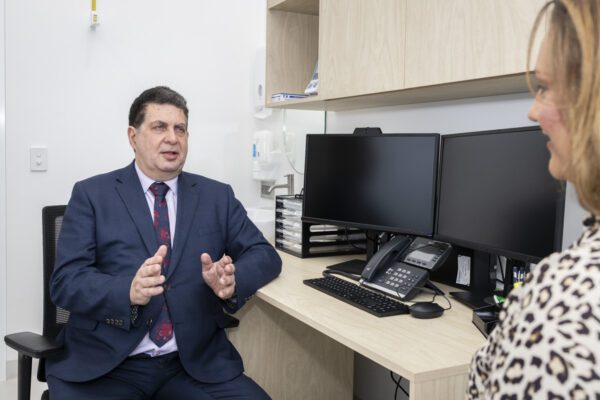We all know music makes us feel good, and research shows dopamine levels increase up to 9% while cortisol levels decrease when people listen to music. This increase in dopaminergic neurotransmission improves mood and affect, while a decrease in cortisol reduces feelings of stress and anxiety.
Music therapy is the research-based allied health profession that uses music to actively support improvements and maintenance of physical, mental, emotional, and spiritual health and wellbeing.
My heart, which is so full to overflowing, has often been solaced and refreshed by music when sick and weary.
Martin Luther
According to the Australian Music Therapy Association, research has shown music therapy can improve memory, attention, and cognitive function, along with emotional self-regulation, self-motivation, planning, and problem solving.
Music therapy is one of the world’s oldest therapies, with examples of music therapy dating as far back as the inscriptions in ancient Egypt, Greece, China, India, and Rome, which all talked of music as a healer with a relaxing effect that soothes anxiety and creates relaxation.

Research-based music therapy programs led by Registered Music Therapists (RMTs) often engage people in mental health treatment. Music therapy helps to access memories and feelings, while creating new thoughts through listening and engaging with instruments, voice, and digital music.
“When used as part of a recovery program, music therapy can increase the likelihood of recovery by engaging various neural networks to enhance brain function and therefore, behaviour,” The Banyans Health and Wellness Neurologic Music Therapist Charé Walton says.
“In music therapy, we are looking to achieve non-musical goals, such as communication, social skills, self-regulation, or emotional expression. Those engaging in music therapy don’t need any musical experience or skills to gain benefits,” she explains.
Music brings us pleasure and releases our suffering. It can calm us down and pump us up. It helps us manage pain, sleep better, and be more productive.
Alex Doman, Author of “Healing at the Speed of Sound”
Music therapy has been proven to help people manage their mental health, including those diagnosed with:
- Anxiety;
- Depression;
- Trauma;
- Bipolar disorder;
- Schizophrenia;
- Post-traumatic stress disorder (PTSD);
- Eating disorders; and
- Personality disorders.
Also used widely around the world in hospitals, music therapy increases energy levels, positivity, and feelings of calm.

The physical benefits of music therapy include lowering blood pressure, improved respiration, improved cardiac output, reduced heart rate, and relaxed muscle tension. For mental health patients, this assists in reducing the physical and mental stress caused by their illness.
Music and the brain
The power of music to change our mood is associated with the production of different chemicals in the brain. Endorphins triggered by listening to and making music provide a naturally occurring pain relief, and the increase in dopamine levels leads to feelings of buoyancy, optimism, energy, and power.
Music is processed extensively across all areas of the brain in connection to memories, emotions, and communication. Brain-scanning and mapping technology, using PET (Positron Emission Tomography) scans and MRIs, show that making music significantly increases brain activity, building new neural pathways across both hemispheres of the brain.

How does Music Therapy work?
Some Registered Music Therapists are trained in more than music, and have often studied clinical skills, including communication, cognitive neuroscience, psychological disorders, as well as chronic illness and pain management. In Australia, music therapists must be registered with the Australian Music Therapy Association.
Music therapy provides meaning, purpose, and happiness, helping people to lead a fulfilling, meaningful life beyond the limitations of their illness.
Music therapy sessions at The Banyans Health and Wellbeing are exclusively one-on-one and sessions can include writing songs for or with a client, singing and vocal activities, improvisation, playing instruments and listening to music.

“There is no typical music therapy program, as each session is tailored to the needs and goals of the individual,” says Charé.
“For example, someone experiencing emotional distress as a result of PTSD may start with listening to familiar music that elicits positive memories and helps reduce their physiological response to stress.
“On the other hand, someone recovering from substance misuse may like to write their own song about their struggles.”
Charé says music has a sustained effect and continues to help people long after they have left therapy sessions, adding one guest says she gets hope and strength on a daily basis from the song she wrote while undetaking at program at The Banyans.
Your brain is better on music.
Alex Doman
The Banyans Health and Wellness takes a multimodal approach to treating anxiety, trauma, and PTSD, which includes integrating traditional therapy methods alongside the alternative therapies of music, art, and equine therapy. The Banyans Health and Wellness offers an all-inclusive, holistic approach to recovery.
For a confidential discussion about how you or someone you care about can benefit from a program at The Banyans Health and Wellness, call our Intake Team which is available any time to help you. Call on 1300 BANYAN (1300 226 926) or complete the online form below.
For more information about Music Therapy:
- Dopamine modulates the reward experiences elicited by music
- Effects of music interventions on stress-related outcomes: a systematic review and two meta-analyses
- Music Therapy for Post-traumatic Stress in Adults: A Theoretical Review





